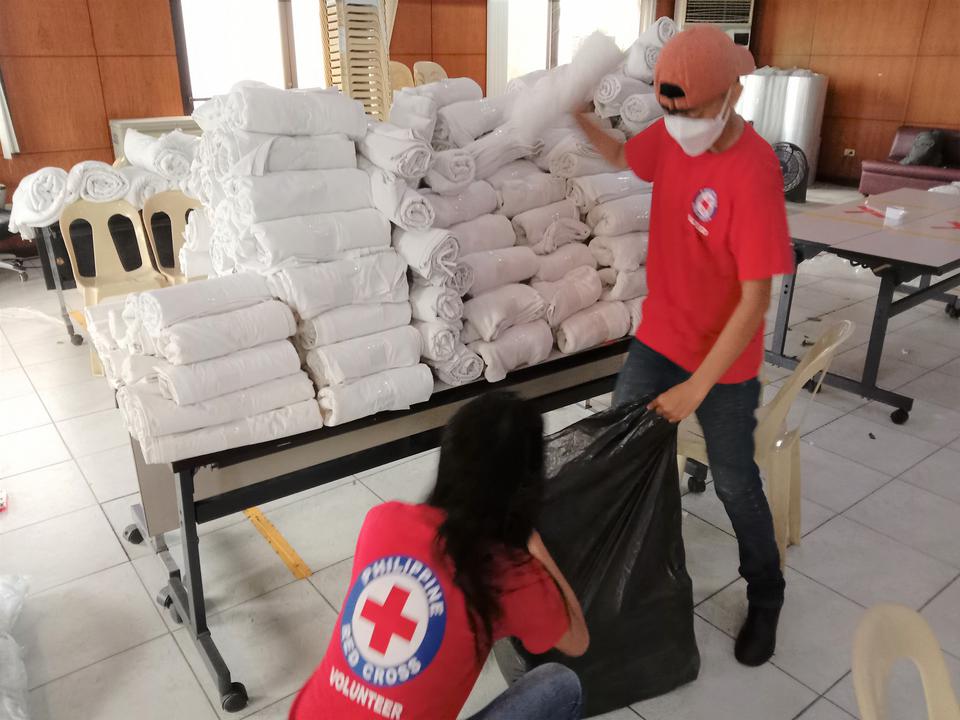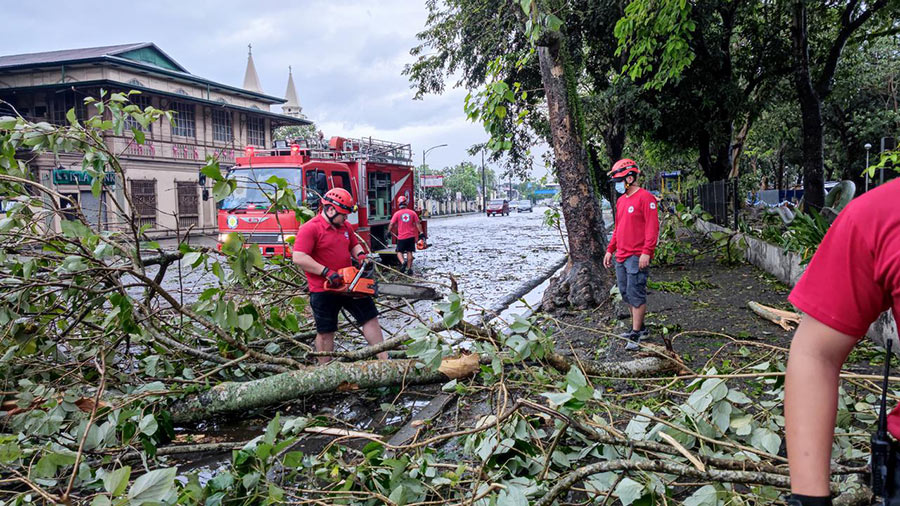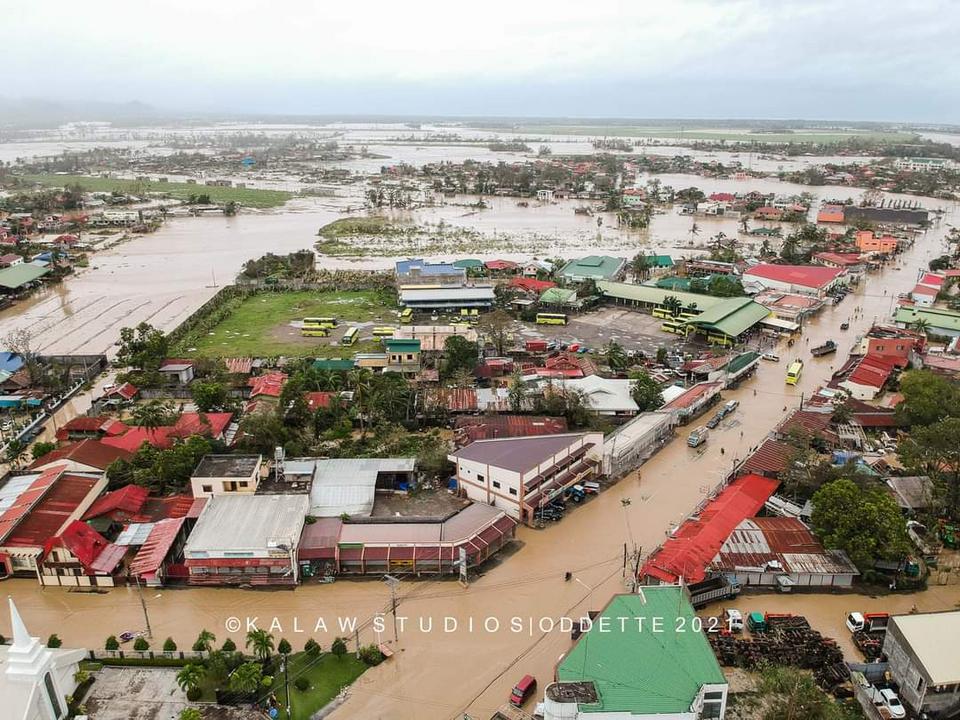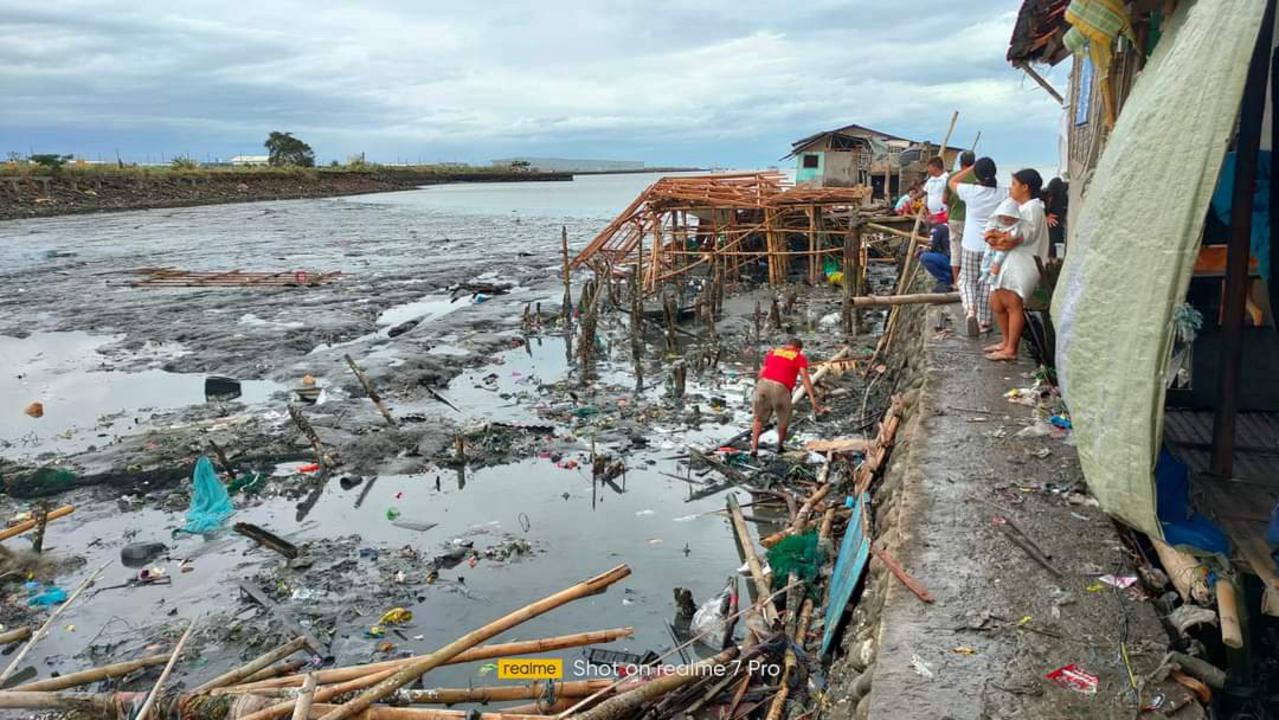Typhoon Rai slammed into the eastern Philippines on December 16 as one of the most powerful storms on record to hit the region. The super typhoon has caused widespread flooding for millions of people hit hard by the social and economic impacts of the COVID-19 pandemic, ravaging islands and coastal communities in the eastern Philippines and carving a path of devastation and flooding towns and cities across the country.
Hundreds of thousands of people have lost their homes and livelihoods just days ahead of the upcoming holiday. The Philippine Red Cross is on the ground providing urgent relief and comfort for people whose lives have been turned upside down, including food, drinking water, blankets, first aid, medical care and shelter.
“Filipinos are rallying together with courage, but after losing everything in this savage storm, international support will enable hundreds of thousands of people to rebuild their homes and decimated livelihoods,” said Philippine Red Cross Chairman Richard Gordon.
On average, the Philippines is struck by around 20 typhoons a year. Devastating impacts from climate change indicate an intensified risk of more powerful and frequent storms to come.
If you are looking for a missing U.S. citizen in the Philippines, please contact the US State Department Office of Overseas Citizens Services and Crisis Management 1-888-407-4747.















